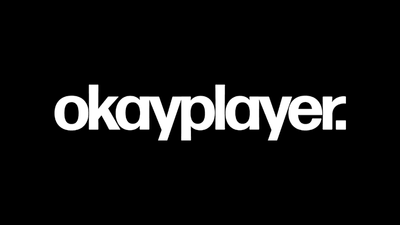Jax's Divisive 'Mortal Kombat 11' Ending Shows That The Gaming Community Still Has A Racism Problem
The way in which some fans have responded to the Mortal Kombat 11 ending speaks to a larger and ongoing problem in gaming — racism.
Mortal Kombat 11, the eleventh main installment of the popular fighting video game franchise, was released on Tuesday (April 23). But even before the game's release, there were leaks that spread throughout the internet, including the ending for playable character Jackson "Jax" Brigg, who is black. Upon completing the game's Arcade Mode (Klassic Tower) with Jax, players are able to watch his ending, where he manipulates time and stops the African slave trade from ever happening in hopes of making the world "a better place for everyone."
"I'm lucky. My family and I lived the American dream. But most people who look like me haven't had that chance. I owe it to them to put things right, and I'm not waiting centuries for people to get woke," Jax says upon defeating Kronika, the game's main antagonist who has the ability to control time. As he speaks, an image of slaves in chains being led to ships is shown in Kronika's sands of time, only to then show an image of two European men respectfully greeting African leaders.
From there, Jax says that he doesn't "get it right the first time. Or the second. Or even the third," referring to the handful of times the fighter goes back into time to not only stop the slave trade but ensure his wife and daughter is still in his life. But he ends up successful, the final scene of his ending showing him and his family in what appears to be African garb in a futuristic city.
Now that the game has been released, fans have been able to view the ending for themselves, and many believe that it's racist — so much so that one Reddit user, by the name of Valdish, created a thread titled "(opinion) I think Jax's ending in mortal kombat 11 makes him racist."
Aside from accusing the ending of being racist, fans on the thread have also argued that Jax's desire to undo slavery is something he wouldn't do.
"It is not Jax's character to whine and cry about slavery. Jax has always been a red white and blue blooded American fighting to save his country and the world we have now," user From_apple_world7 wrote in the thread.
Since its posting two days ago, the thread has received over 335 comments, with some fans either justifying their disliking of the ending by equating the African slave trade to the Arab slave trade; reminding readers that black people were sold to slavery by black owners in Africa; or by just being blatantly racist.
Aside from the Reddit thread, there was also this YouTube video that suggested Jax's ending is promoting "white genocide."
The irony of this is that some of these gamers are not only showing their misunderstanding of what racism is but being racist themselves, clearly distraught over a fictional black character undoing a historically catastrophic event that the United States is still affected by. The absurdity of this speaks to other complaints fans have had about the game, like the designs for women's outfits being toned down and not as sexualized as previous video game entries. In moments like this, some gamers tend to justify their outrage by claiming to defend the accuracy and lore of a character or series. This has been a recurring discussion throughout the 2010s, from comic book fans being againstMichael B. Jordan's casting as the Fantastic Four's Johnny Storm in 2015 to the hostility the all-women Ghostbusters remake endured both prior to and after its release in 2016.
Fans are uncomfortable with the way a character or series they have a strong attachment to changes from their idea of who or what they understand it to be. This is the root of fan culture — people strongly resonating with a form of art and either supporting or begrudgingly accepting of how it evolves. It's an inevitability. However, this doesn't excuse fans for being unabashedly harmful, ignorant and offensive. The controversy surrounding Jax's ending is a reminder of the 2014 Gamergate controversy that not only highlighted the toxicity of gaming culture but online platforms like 4chan, Twitter, and Reddit.
But it's also likely that fans are uncomfortable with having to face reality in something that functions as an escape from that. The Mortal Kombat series is built on fantasy: there are centaurs, cyborgs, and ninjas; fighters who can shoot fire, ice, and spears from the palms of their hands; and fatalities that leave these fictional characters in a pool of their own blood and guts. To successfully complete the game only to have to watch a character ending that references something that isn't folklore or mythos but is real is going to take someone out of the experience.
But to minimize the ending to pandering or trying to promote a social justice warrior agenda — as some critics have claimed — undermines art's ability and right to provide political commentary. It's also a reflection of the growth of this almost 30-year-old series and the people behind it. Surely, Mortal Kombat co-creator Ed Boon (fellow creator John Tobias wasn't involved in Mortal Kombat 11) has grown as a person since the first entry into the series in 1992. Inevitably, that's going to inform and seep into his art and how he chooses to express it, which is why an ending like Jax's exists. (It's worth noting that the writers for Mortal Kombat 11 were Dominic Cianciolo and Shawn Kittelsen and not Boon, but as director of the game Boon presumably approved its content before its release.) Like Boon, the fictional character has grown and changed too.
Maybe the fans who are complaining about Jax's controversial ending should consider doing the same.
